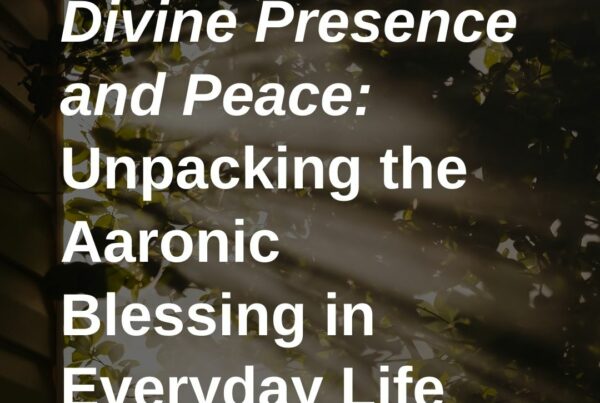
I have often written about the need for a genuinely biblical framework for all of life.1 The challenge, of course, is with that word genuinely. Within the church, everybody believes their view on politics, sex, or culture is biblical. Even outside the church, various ideologies claim Jesus supports their vision.
One of the biggest reasons this is the case is because, for many, biblical means the ability to marshal support for their view by rounding up individual verses and passages; the more verses, the stronger the argument. However, this is comparable to buying a brand-new Star Wars LEGO set, building what you like from the pieces, and declaring it Star Wars.
What you make is only genuinely representative if you build according to the instructions and if it matches the picture on the box. For our views to be biblical, they must be consistent with the whole narrative of Scripture, not just cobbled together from its contents.
The problem is more significant than an ineffective method. There is a spiritual reality at play here, what the apostle Paul calls strongholds.
For though we walk in the flesh, we are not waging war according to the flesh. For the weapons of our warfare are not of the flesh but have divine power to destroy strongholds. We destroy arguments and every lofty opinion raised against the knowledge of God and take every thought captive to obey Christ. (2 Corinthians 10:3-5)
Defining Strongholds
The first thing to notice about strongholds is that they are ideological. Arguments, opinions, knowledge, and thoughtsmake up the battlefield where war is waged. The second thing to notice is in the metaphor itself. A stronghold is a fortress, an outpost in contested territory.
Speaking philosophically, these are not just your average ideas but landscape-controlling ideas. Ideas like these are not merely a part of our thinking; they are the ideas through which we perceive our world; they shape our plausibility structure, values, and aspirations.
Often they are connected to, or representatives of, “isms” such as socialism, nationalism, or hedonism. But strongholds do not need a name to be effective, and for those who hold them, stronghold ideas are presuppositional: assumed givens which are unquestioned and thus invisible.
What is invisible is by nature transparent. Strongholds are made of glass; we do not so much look at them but look through them, and they distort the perception of those inside. These are not merely ideas you hold but ones that have a hold of you.
That brings us to a third point: strongholds appear defensive to those in them. They provide security. But those who hold them, those who are inside, are nothing more than captives, even if they have developed a form of Stockholm syndrome (Col. 2:8).
Fourth, we need to understand that although the realm of ideas is human, strongholds are not merely human. Spiritual weapons are necessary because we face a spiritual adversary (Eph. 6:12). Strongholds are human ideologies that have become demonically empowered and are deceptive and powerful.
The last observation we need to make about strongholds is that they are found in the world and the church. In this context, Paul is not addressing pagan philosophers or Judaizers. He is addressing the church in Corinth as part of his ongoing struggle to move them from the world’s wisdom to God’s foolishness (1 Cor. 2:1-5, 3:18-20; 2 Cor. 2:1-12, 11:3).
In summary, strongholds are demonically empowered perspectival ideas that take those who hold them captive and distort their worldview, which must be torn down so they can see clearly.
How is it that strongholds hinder our ability to be biblical? When strongholds exist in the church, they become a lens through which we read the Bible and thus we distort the teachings of Scripture in order to defend the stronghold. This is tragic; when we domesticate the Scriptures to our strongholds, we enlist them to uphold deception instead of tearing it down.
Again, the piecemeal prooftext approach I mentioned in the introduction is especially liable to this misappropriation. We ignore the box the LEGO bricks came from and build our little infantry to defend the stronghold instead. The sword of the Spirit, which is the word of God (Eph. 6:17), is powerful to tear down strongholds, but not if it is domesticated to some other idea. Either we take every thought captive to the knowledge of Christ, or we remain captives of the enemy.
Defeating Strongholds
How can we remove the strongholds that have infiltrated the church? If they are invisible to us, distort our understanding, and even marshal a defense from the Bible, what hope is there of their destruction?
First, we need to develop a hermeneutic of humility. Strongholds are not a non-Christian problem or a Corinthian problem; they are a fallen human problem, which is to say they are our problem. We need to own that the enemy has set up camp in our minds and seek God’s help and power in expelling the intruder.
Second, we need to stop settling for bringing our surface questions to the text of the Bible while leaving our deeper answers unquestioned. What I mean is that before we answer our questions on a Christian political platform, we must seek to understand politics biblically. Before defining good sex, we must see what part our sexuality plays in God’s plan. We need to move from merely asking questions of what and how to questions of why.
Third, we must resist the culture of fear in which we swim daily.
Fear is a stronghold’s greatest recruiter. We must remember that the Christian view of our world is much more negative than our culture (since we as human beings are the problem, not our circumstances) and more positive (since God is real and has provided a solution to the deepest problems in Jesus Christ). A spirit of fear is not the Spirit of God (2 Tim. 1:7).
Finally, to come full circle, we must build our biblical view with the whole Bible. We need to master the picture on the box, the Bible’s story, and the questions it seeks to answer. For the truths of Scripture to remain biblical, they must be demonstrably part of that story, which is the story of everything, so surely it addresses our concerns. We should be able to trace any given little answer to those big answers. Inevitably as we seek that goal, the strongholds will come down because they will pale in comparison to the glory of Christ.
References
1 See articles below:
https://calvarychapel.com/posts/fundamentalists-progressives-and-theological-method/
https://calvarychapel.com/posts/a-paradigm-for-christian-education/













